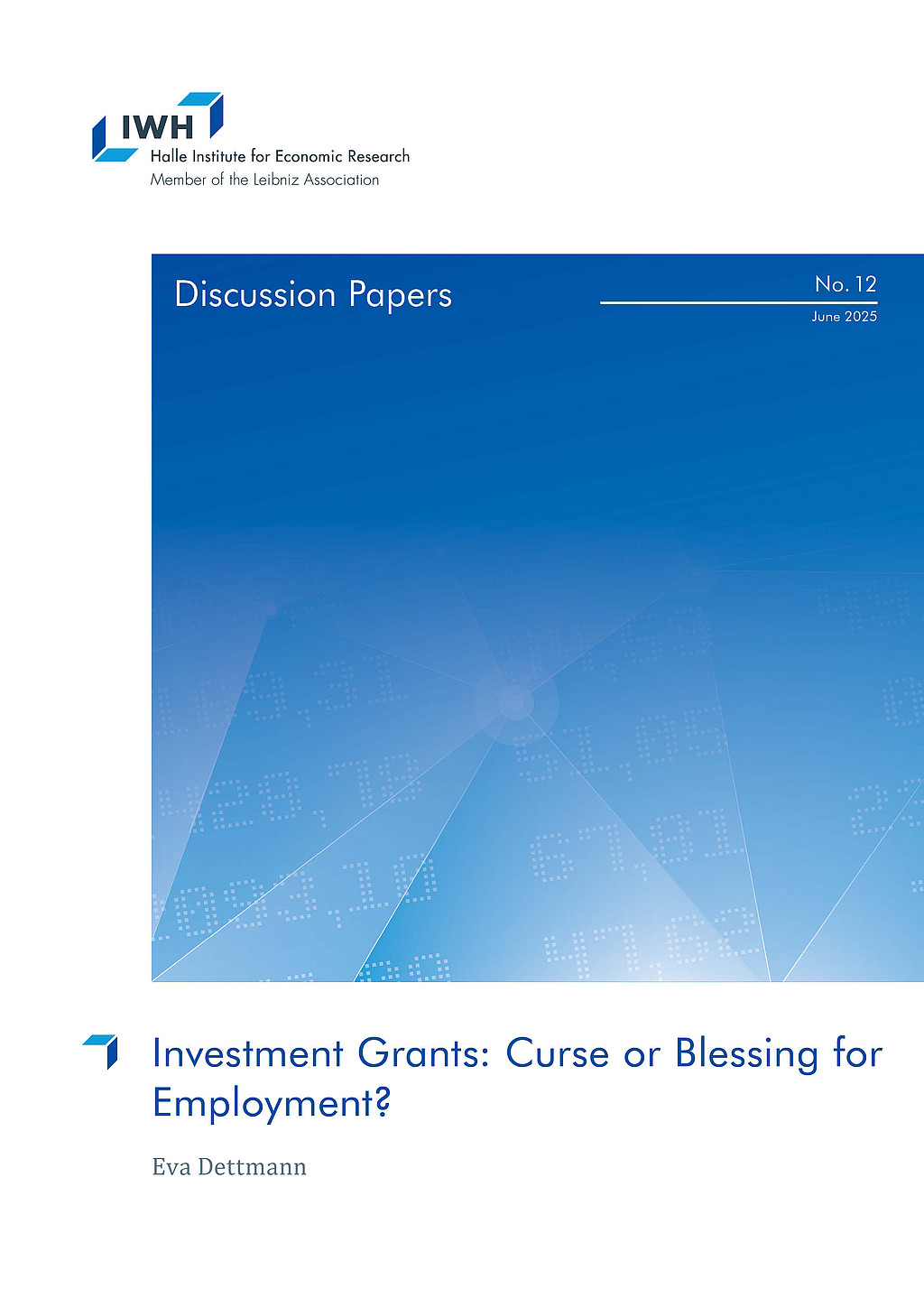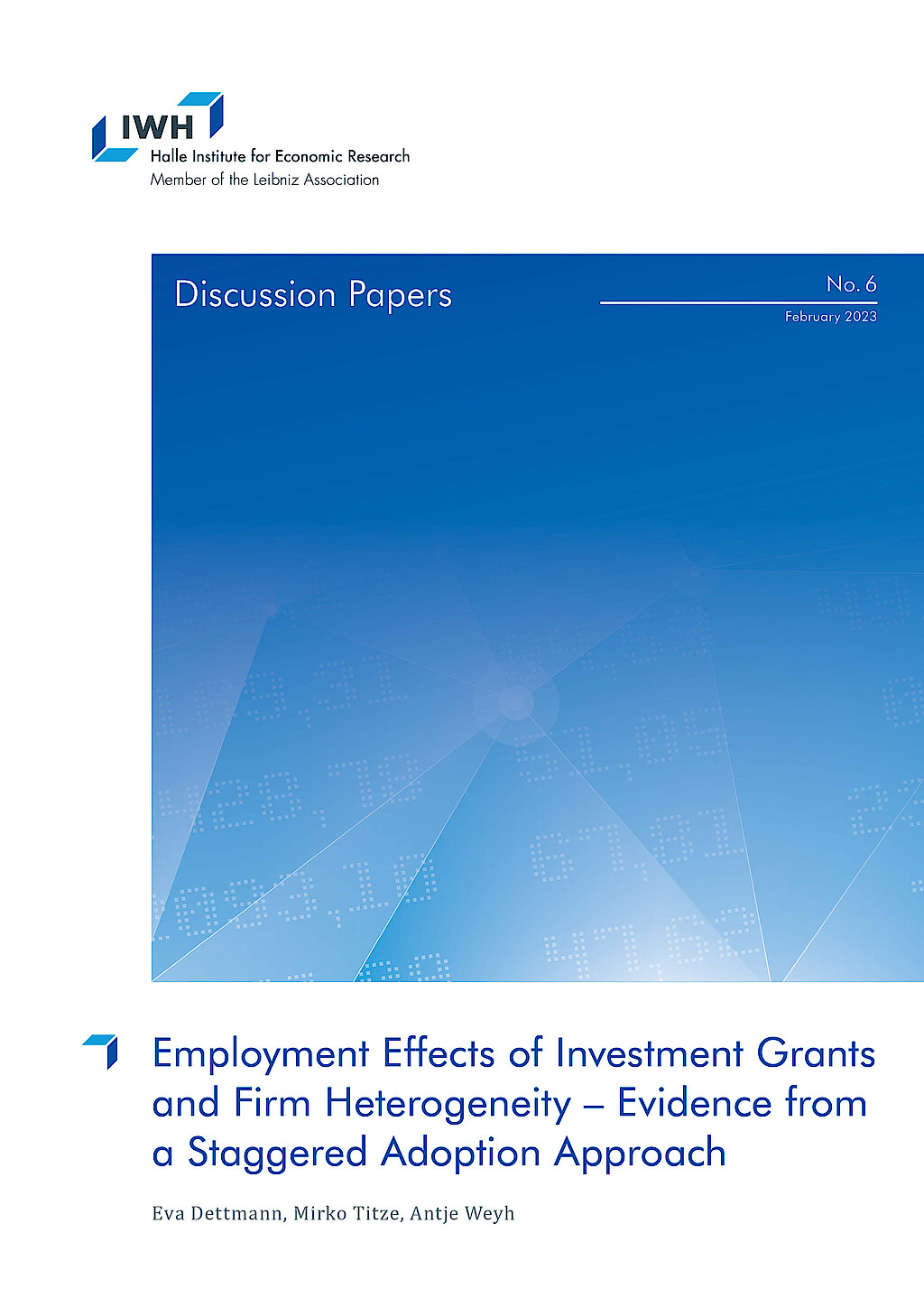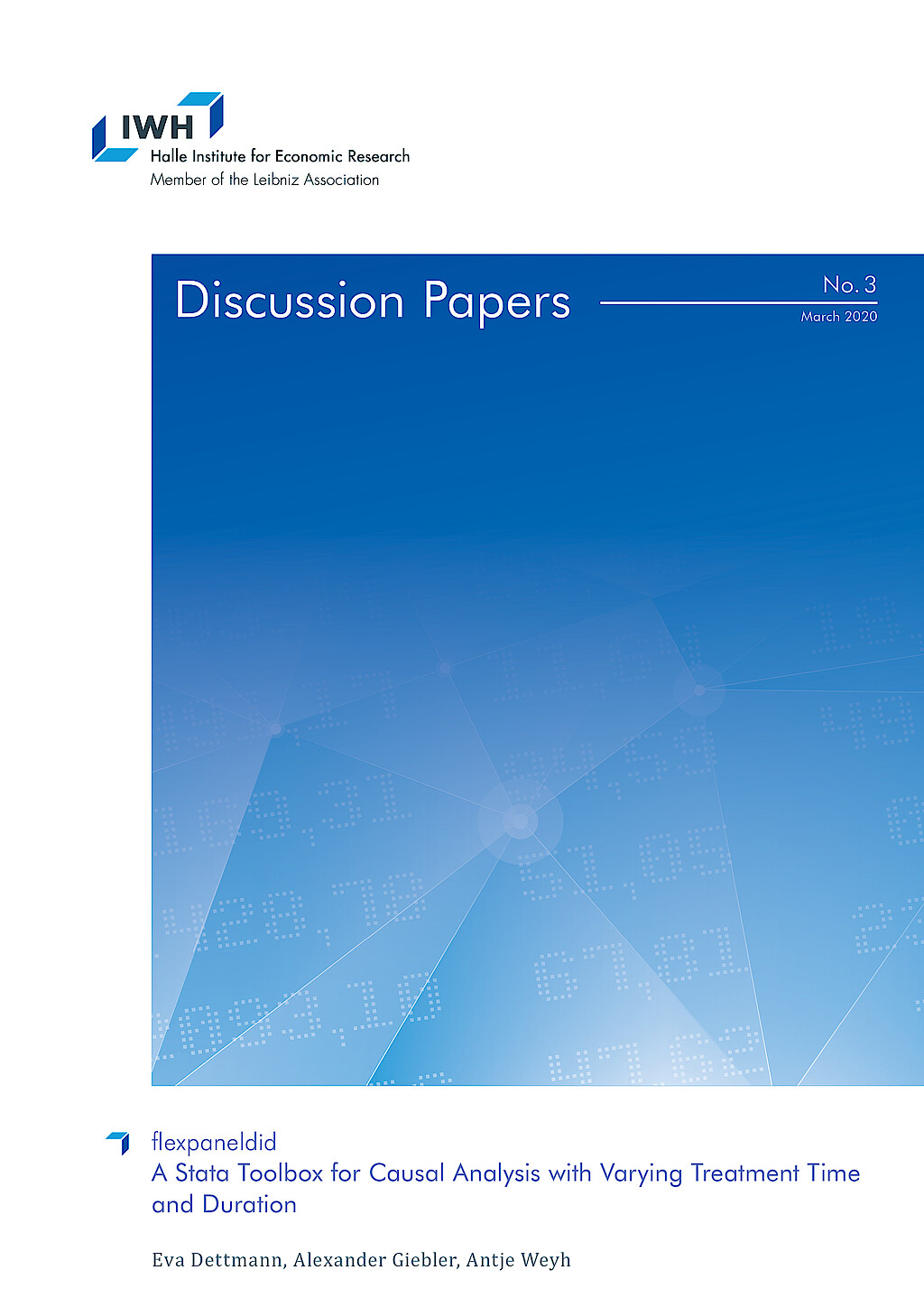
Investment Grants: Curse or Blessing for Employment?
in: IWH Discussion Papers, No. 12, 2025
Abstract
<p>In this study, establishment-level employment effects of investment grants in Germany are estimated. In addition to the quantitative effects, I provide empirical evidence of funding effects on different aspects of employment quality (earnings, qualifications, and job security) for the period 2004 to 2020. The database combines project-level treatment data, establishment-level information on firm characteristics and employee structure, and regional information at the district-level. For the estimations, I combine the difference-in-differences approach of Callaway and Sant’Anna (2021) with ties matching at the cohort level. The estimations yield positive effects on the number of employees, but point to contradicting effects of investment grants on different aspects of employment quality.</p>

Employment Effects of Investment Grants and Firm Heterogeneity – Evidence from a Staggered Adoption Approach
in: IWH Discussion Papers, No. 6, 2023
Abstract
<p>This study estimates the firm-level employment effects of investment grants in Germany. In addition to the average treatment effect on the treated, we examine discrimination in the funding rules as potential source of effect heterogeneity. We combine a staggered difference-in-differences approach that explicitly models variations in treatment timing with a matching procedure at the cohort level. The findings reveal a positive effect of investment grants on employment development in the full sample. The subsample analysis yields strong evidence for heterogeneous effects based on firm characteristics and the economic environment. This can help to improve the future design of the program.</p>

flexpaneldid: A Stata Toolbox for Causal Analysis with Varying Treatment Time and Duration
in: IWH Discussion Papers, No. 3, 2020
Abstract
The paper presents a modification of the matching and difference-in-differences approach of Heckman et al. (1998) for the staggered treatment adoption design and a Stata tool that implements the approach. This flexible conditional difference-in-differences approach is particularly useful for causal analysis of treatments with varying start dates and varying treatment durations. Introducing more flexibility enables the user to consider individual treatment periods for the treated observations and thus circumventing problems arising in canonical difference-in-differences approaches. The open-source flexpaneldid toolbox for Stata implements the developed approach and allows comprehensive robustness checks and quality tests. The core of the paper gives comprehensive examples to explain the use of the commands and its options on the basis of a publicly accessible data set.



